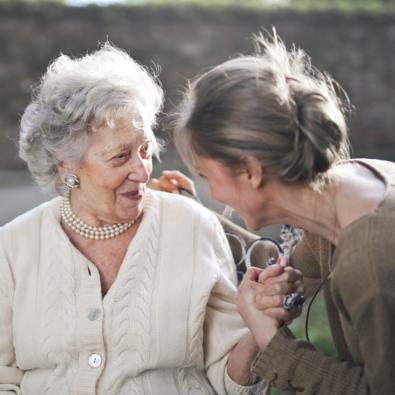
Our Checklist For Moving Elderly Parents Into A Retirement Home
According to the National Institute of Health, an estimated 4.5% of seniors live in retirement homes while another 2% live in assisted living facilities. That means that every year, thousands of families help their elderly parents move into a new space where they can get the help they need.
Moving your elderly parents is a delicate process. A lot must be done and emotions can run high when moving away from a familiar space.
One way to make this process easier is to follow a checklist for moving elderly parents. By taking things one step at a time, you can lighten the load for you and your loved ones!
Read on for our comprehensive checklist of everything you'll need to tackle when moving your elderly parents.
Step 1: Know When to Put Elderly Parents in a Nursing Home
It's not always easy to make the call to move a parent into a nursing home, but there are several telltale signs.
The most obvious sign that your parent needs assisted living is when a medical problem persists that they can no longer address on their own. Medical problems can range from physical to cognitive.
In some cases, an elderly parent may benefit from assisted living when day-to-day tasks like cooking, cleaning, and grooming become more difficult. Having round-the-clock caregivers eliminate many of the concerns that arise in these situations.
Ultimately, if you feel that your parent would be safer and have a better quality of life in a nursing home, then it's time to consider making that transition.
Step 2: Make the Decision Together
Your parents may have a difficult time accepting that they need to leave their current home. Making the decision to transition to assisted living together can alleviate some of their feelings of frustration or sadness.
Begin by looking into nursing homes near you or another close family member. Ask if they can mail you any brochures or schedule a tour that will give your parents a better idea of what the nursing home is like! Together, you can decide which facility is best for your parents.
Step 3: Begin Sorting Through Elderly Parent's Current Home
Once the moving day is approaching, it's time to begin downsizing. Chances are, your parents' private quarters in a nursing home will be smaller than the home they are leaving. Plus, many nursing homes are furnished, which means that they won't need to bring large pieces like their bed, dresser, or couch.
Start with the necessities like clothing, books, and other items that your parents do not wish to part with. Once you have an idea of how many necessities they have, you'll be able to gauge how many other things they can bring with them.
Keep in mind that we tend to have sentimental value attached to many of our belongings! Stay open to the idea of hanging onto family heirlooms and other significant objects that your parents can't bring with them. That way, they'll know that they still have access to these objects and that they haven't left the family.
From there, decide what can be donated, what should be put into storage, and what should be thrown away. Don't forget to hire a helping hand to take care of the donation or disposal process.
The earlier you start sorting through items, the better. For good reason, this is oftentimes the most emotional part of moving!
Step 4: Pack Properly
Once you have your parents' belongings pared down, it's time to start packing. Make sure that you pack their things in a way that is safe, accessible, and prioritized.
Safe packing means that nothing will break and that boxes won't become heavy enough that they cause injuries. For example, make sure that any dishes or breakable objects are wrapped with packing paper, bubble wrap, or other protective materials. Consider topping off heavier boxes with light, soft materials like bedding, towels, and clothing.
Accessible and prioritized packing means that the most important belongings are the easiest to get. We often recommend that things like medication, eyeglasses, and bathroom necessities are packed in a suitcase or bag that can be kept in the car. That way, as soon as you arrive at the nursing home, these items can be accessed as needed.
Step 5: Hire a Trusted Moving Company
On moving day, you're going to want to give as much of your attention to your parents as possible. They may need assistance and emotional support as they make this big transition.
Hiring a trusted moving company is a great way to ensure that you can stay focused on Mom and Dad. That way, you know their belongings are in good hands even if you're not the one loading the truck and moving them to the nursing home.
Plus, when you work with a trusted moving company, you can receive packing and unpacking services, too! Don't go through the hassle of picking up packing materials and wrapping up breakables. Let someone else take some of the burdens off your shoulders.
Follow This Checklist for Moving Elderly Parents for a Smooth Transition
If it's time for your parents to move into a nursing home, you're not alone. Thousands of families go through it each and every year. As long as you follow this checklist for moving elderly parents, you'll find that the process isn't as hard as you expected!
Allow the movers at College H.U.N.K.S. to be of service to you! We've been helping families across the nation move in and out of their homes and apartments for years and offer customized packages to fit every moving budget. Contact us today to book your moving day!
